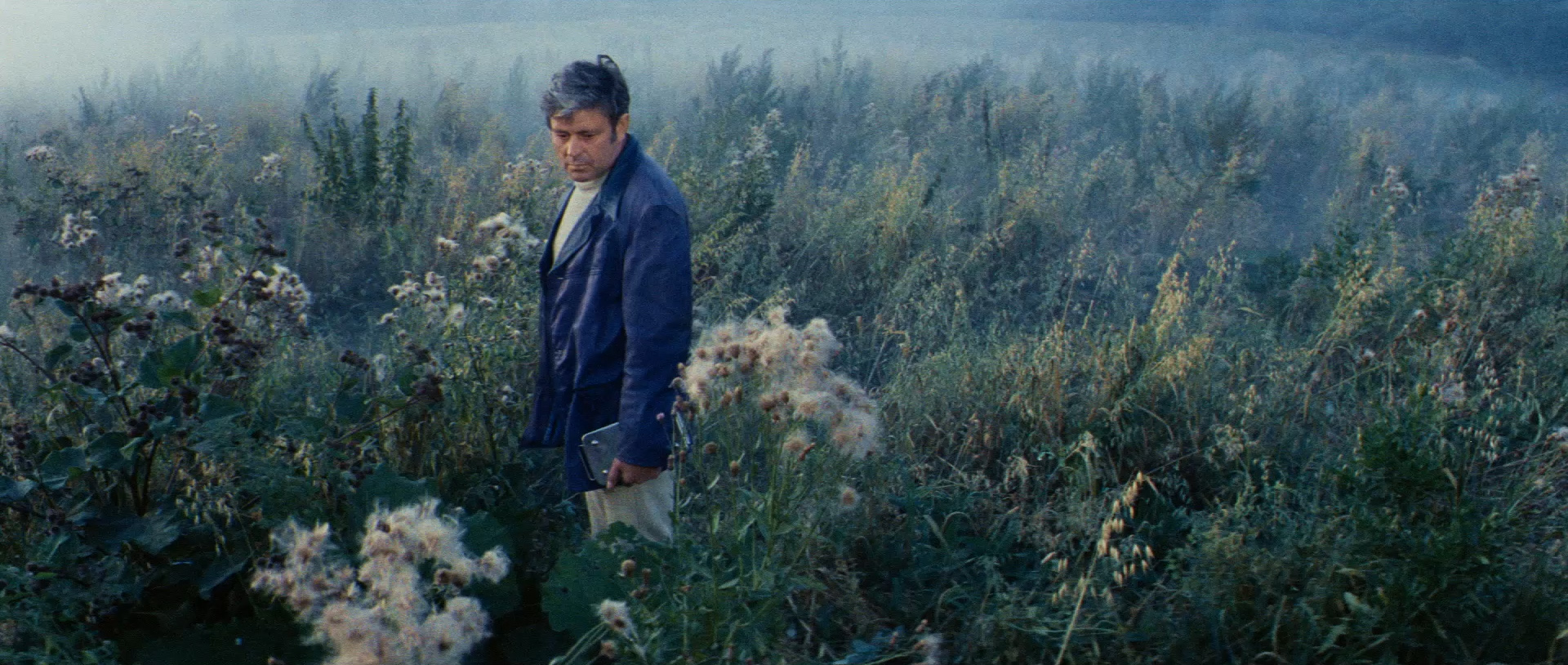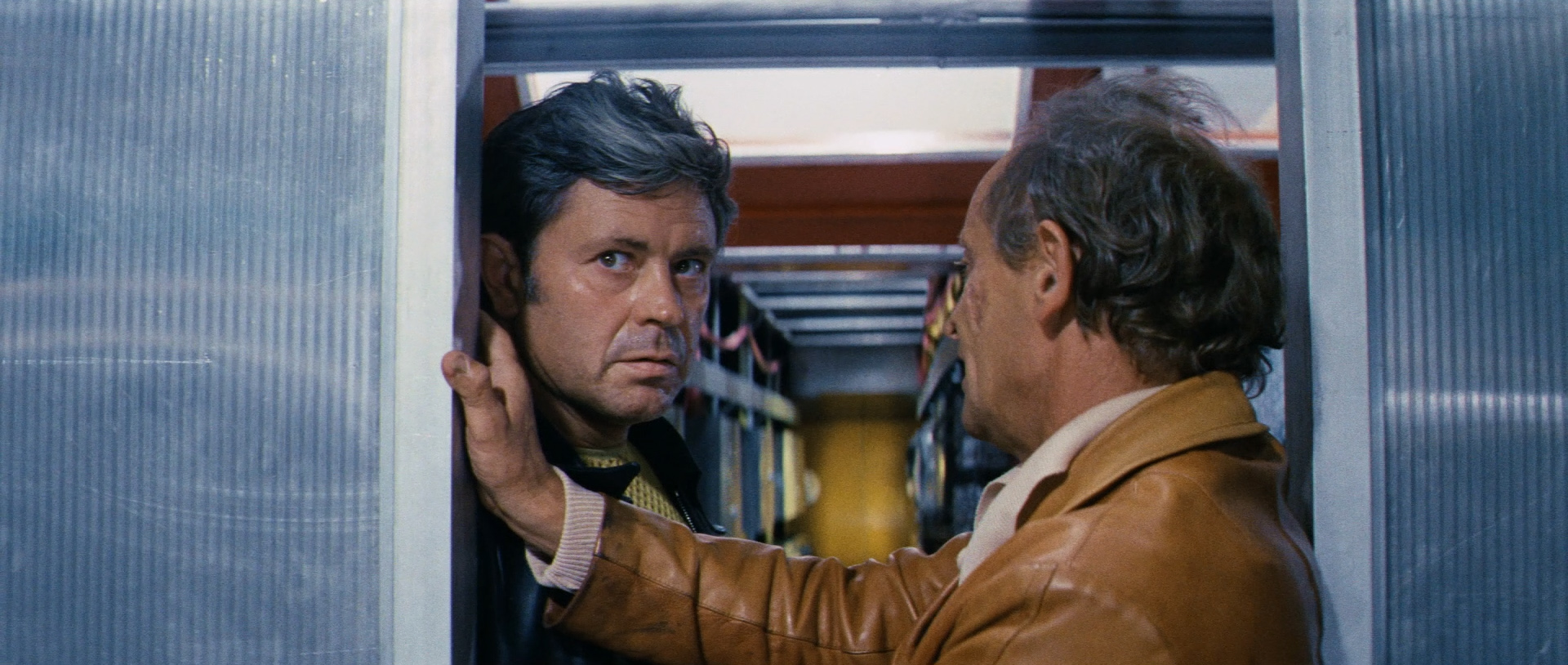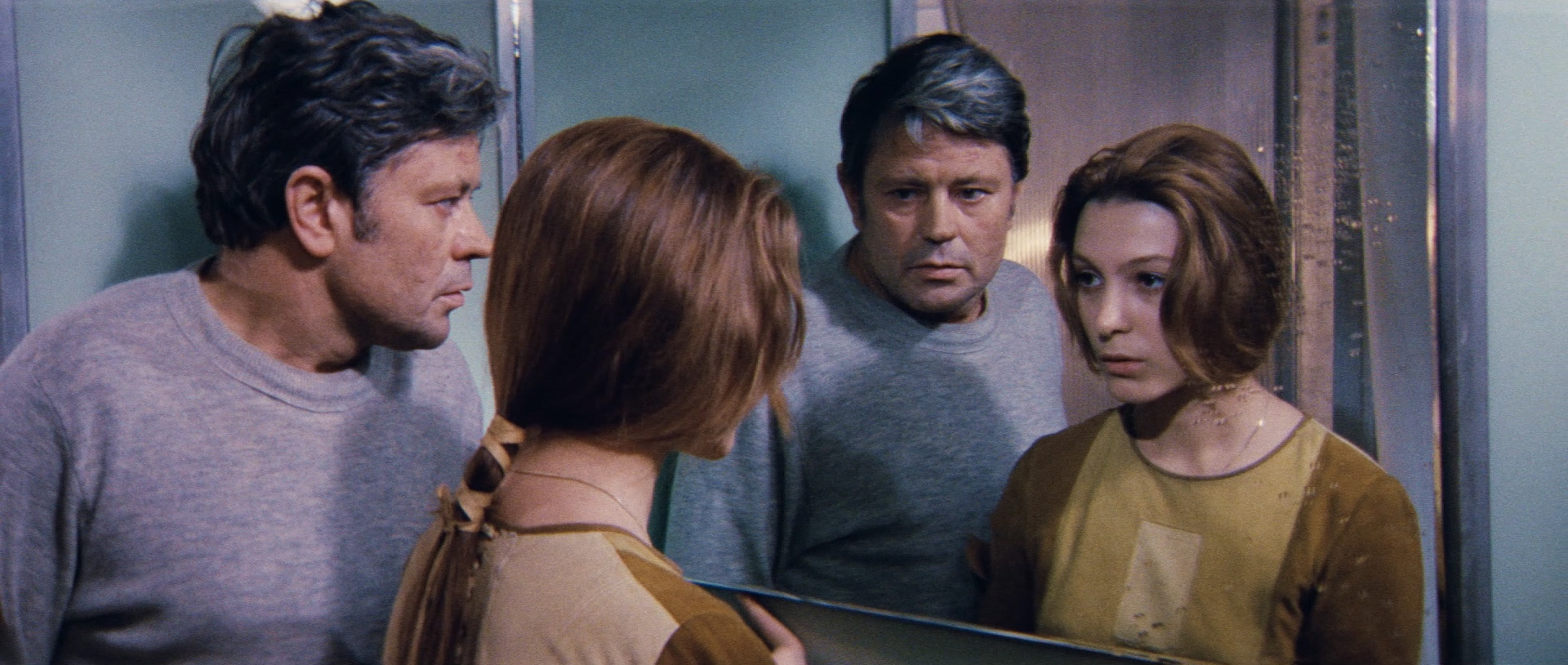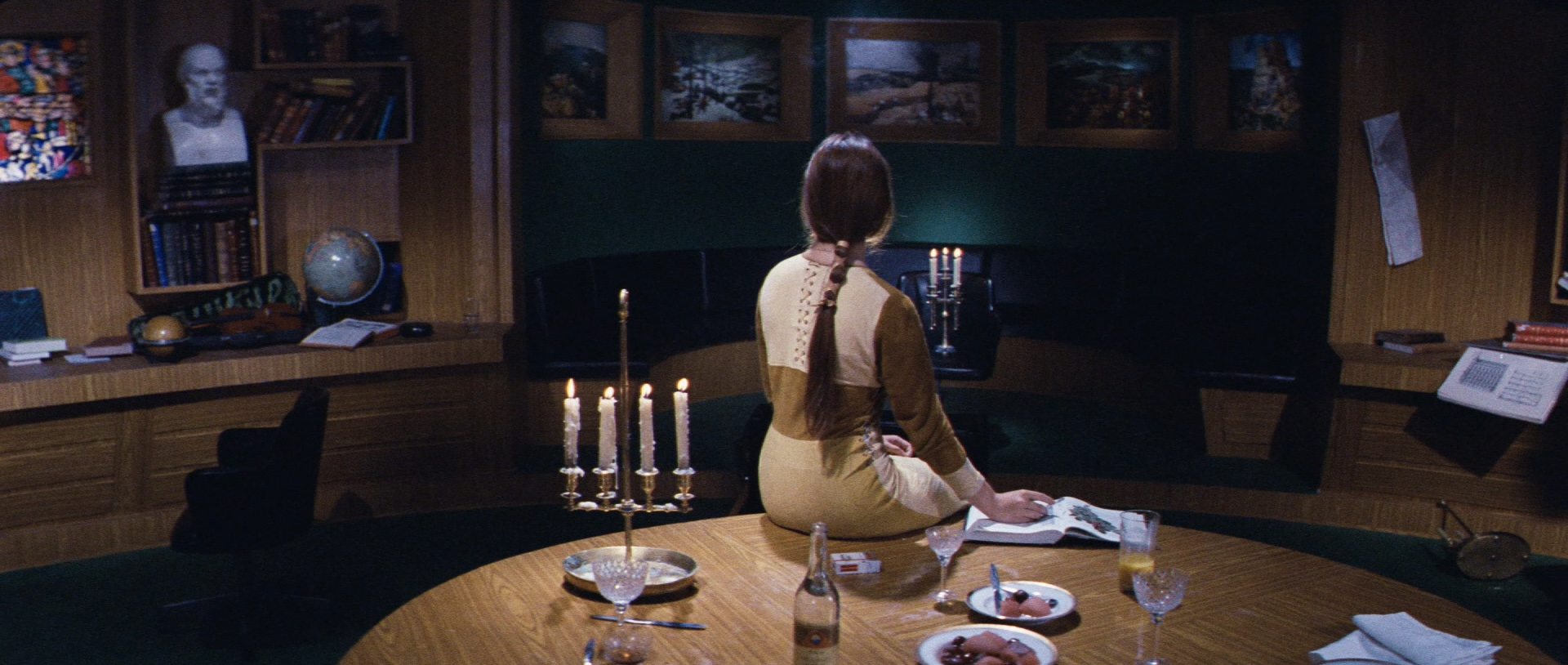Jake Sulpice
☆ Solaris
Watched on January 2, 2024

The profound storytelling and atmospheric cinematography in Andrei Tarkovsky’s 1972 film Solaris, based on Stanisław Lem’s novel of the same name, create a remarkable, interstellar experience. The film delves into psychological curiosities, offering a meditative experience that explores the interactions between human consciousness and an alien entity on the mysterious planet Solaris. Tarkovsky’s adaptation stands out for its introspective nature, reflecting a contemplative pace that immerses the audience in the characters’ psychological journey, creating a sense of poetic realism.
We want to extend the Earth up to its borders. We don’t know what to do with other worlds. We don’t need other worlds. We need a mirror. We struggle to make contact, but we’ll never achieve it. We are in a ridiculous predicament of man pursuing a goal that he fears and that he really does not need. Man needs man!
The plot of Solaris centers on psychologist Kris Kelvin, who embarks on a mission to a space station orbiting the planet Solaris to investigate strange occurrences. While onboard, he encounters physical manifestations of his deceased wife, Hari, brought to life by the planet’s mysterious abilities. Hari’s existence forces Kelvin to confront deep questions about identity, love, and the boundaries of human understanding. The planet Solaris becomes a metaphorical exploration of the depths of the human psyche, manipulating memories and emotions. Because of this, the line between reality and illusion is blurred. This offers an important question to the viewer: What does it mean to exist?

Solaris is rich in thematic allegories, addressing the exploration of human consciousness, the nature of love and relationships, and the blurred lines between true physical existence and false perception. With this, it raises existential questions about life’s meaning and the intricacies of memory and understanding. In addition, the film also portrays the isolating nature of space, delving into human loneliness and the longing for connection, a familiar struggle for all beings. These thought-provoking themes are intertwined with motifs of grief, loss, scientific exploration, and human hubris, presenting a multifaceted examination of the human condition.
Symbolism is embedded deep in the narrative, with the strange planet often interpreted as representing the subconscious mind, where the characters’ suppressed desires and unresolved emotions manifest. The film also serves as a critique of scientific expeditions and humanity’s overreaching desire to control the unknown, reflecting the limitations of human knowledge and the unforeseen consequences of interfering with forces beyond our understanding.

The cinematography in Tarkovsky’s work is flawlessly executed, as always. Long, drawn-out shots are skillfully superimposed only by chilling sound design and meticulously crafted dialogue, a testament to the director’s ability to produce moving, dramatic sequences without a touch of tackiness or overindulgence in his craft. The exceptional performances by the small yet devoted cast make it unsurprising that each of the four main acts stands out. Each performance elevates the story to grand heights with masterful dialogue delivery and subtle yet striking mannerisms. In addition, the remarkable set design, especially for the time in which Solaris was filmed, draws the viewer into its world with ease. Even the downpour of rain in the film’s introduction feels charming.
To ask is always the desire to know. Yet the preservation of simple human truths requires mystery. The mysteries of happiness, death, and love. To think about it is to know one’s day of death… Not knowing that day makes us practically immortal.
Solaris’ end remains open to interpretation, encouraging us to reflect on the themes presented throughout the movie and meditate on reality, consciousness, and the human mind. It can be viewed through various lenses, including existentialist viewpoints and as the continuation of the characters’ journeys. This suggests that the quest for understanding and personal growth is an ongoing process without a definitive conclusion. One explanation is that the planet’s ocean, which is now supplied with a full encephalogram of Kris Kelvin’s brain, has fabricated a physical imitation of his subconscious world, including a tangible replica of Kelvin himself. This could have two meanings: either what we see is a duplicate of Kelvin while he’s back on Earth, or Kelvin stays on Solaris, living in a world of his own fantasies and fulfilling his innermost desires.

My favorite explanation of the final scene is that Kelvin has stayed at his cloned house on the island atop the planet’s vast ocean. At the start of the film, the protagonist clarifies he intends to maintain the illusion that his deceased wife is alive, particularly upon learning that she will become more human with each subsequent reincarnation. Dr. Sartorius notes Kelvin is exploitable and naïve in the space shuttle’s abnormalities, later reflected by that conviction to remain with Hari and express his undying love for the woman he knows to be a reflection of his fractured mind.
Even with all that considered, Hari’s desperate codependency on Kelvin from their initial contact evolves. Throughout the unfolding story, she gains insight into her true self as her consciousness expands. In the final act of the film, Hari attempts to take her own life by drinking liquid oxygen, only to resurrect against her best impulses. She knows she is not Kelvin’s wife Hari, and her ultimate wish is to free him from a self-imprisoned life on the space station by being entangled with the planet’s apparition.
Well, anyway, my mission is finished. And what next? To return to Earth? Little by little everything will return to normal. I’ll find new interests, new acquaintances, but I won’t be able to devote all of myself to them.
While Solaris did not quite match my admiration for Tarkovsky’s other science-fiction drama Stalker, it did come close. This is a film that forces you to think and reflect, a unique addition to the sci-fi pantheon. Though the influence of Stanley Kubrick is apparent, Solaris’ own impact on the genre cannot be understated nor ignored. This is not your standard space opera, but a metaphysical achievement in cinema as a whole. Tarkovsky truly is one of the greatest to ever do it.

Details
- IMDB | Letterboxd
- Released in 1972
- Directed by Andrei Tarkovsky